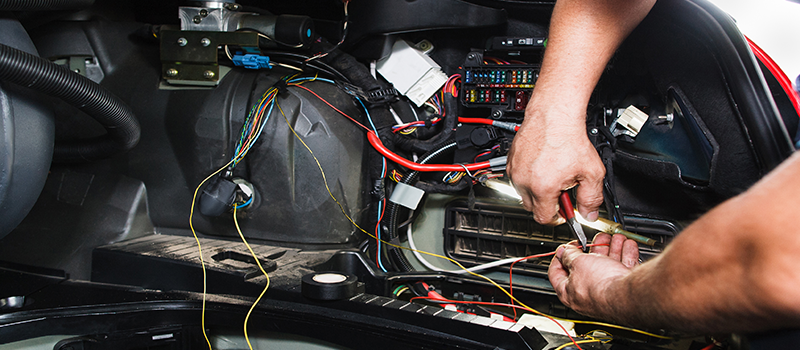It’s a fact of life that rodents are relentless chewers. They don’t discriminate, chewing on practically anything. When it comes to vehicles and farm equipment, rodents love to crawl up into dark engine compartments, particularly in cold weather, and make their nests. This often results in extensive damage and a hefty repair bill, not to mention safety issues and downtime caused by equipment failure.
Unfortunately, this problem has only gotten worse in the past decade or so. Rodent damage has become so widespread that class-action lawsuits were filed against two major car manufacturers in 2016.
The speculated cause: soy-based wire insulation. Manufacturers have relied on it more in recent years because it’s less expensive, biodegradable and reduces waste. Incidents of wire chewing and other damage caused by rodents seem to have skyrocketed ever since. A quick online search brings up countless horror stories, most resulting in hundreds, or even thousands, of dollars of repair work. In many cases, the repairs are not covered under warranty.
So, what can be done? Try some of these preventative measures to protect your fleet and equipment from rodent damage.
How You Can Prevent Rodent Damage:
- Seal or remove potential hiding places for rodents near your vehicles and equipment.
- Run your vehicles and equipment frequently to discourage rodents from making themselves at home.
- Try deterrents. Electronic devices are available that repel rodents with sound and/or light. You can also try substances like pine-scented cleaners, peppermint oil, ammonia, mothballs, steel wool, cloves, cayenne pepper, animal hair and animal urine. (Fox and coyote urine is sold for this purpose.) These substances have scents that repel rodents. Just place these substances around your vehicle or equipment, being careful to leave any harmful substances out of reach of children and pets.
- Wrap your wiring with mesh.
- Block openings into the engine compartment. Wire screen can be used for this, but placing traps on top of the tires or around the vehicle may also work.
- Keep your car interior clean and free of food and food particles. Crumbs attract rodents, as does pet food (rats especially love dog food) and bird seed.

Inspect the engine compartment thoroughly once a week for signs of rodent infestation, including droppings, dirty footprints and nesting materials. They tend to hide in the nooks and crannies, so make sure you use a bright task light to illuminate the areas you inspect.
If the damage has already been done, you don’t have to replace the wiring with more soy-based insulated wiring. Wires with PVC, polyethylene, rubber or plastic coatings may be less likely to attract rodents. Used with some of the preventative measures listed above, you may have better luck keeping rodents out of your engine.
If rodents are causing damage to your equipment or fleet, make sure you always have the necessary parts and supplies for your inspections and repairs.
.png?width=131&height=58&name=image%20(40).png)

